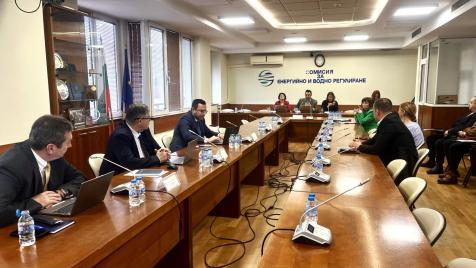Let's get out of the "Valley of Death": The EC is pooling money for science and industry and simplifying procedures
The goal is to keep European innovation from going to China and the US and to produce it locally

© ECONOMIC.BG / Borislav Danchov
The European Union is preparing a major change in the way it finances industry and scientific research. The new European Competitiveness Fund (ECF) proposed by the European Commission aims to do what Europe has so far struggled to achieve: to bring good ideas from the laboratory into actual production on the ground.
Europe can no longer afford to leave its innovators in the "valley of death" – that moment when, after the creation of a new technology, there is insufficient large-scale and flexible funding to reach production," commented Tatiana Lopez Garrido, Deputy Head of Unit at the European Commission's Directorate-General for Internal Market, Industry and Entrepreneurship (DG GROW).
She took part in the international forum iN Sofia 2025, organized by Economic.bg, which was held on October 31, 2025, at the Hilton Hotel.
The gap between breakthrough and production
According to her, Europe is strong in science and technology, but often loses its advantage when it comes to actual production.
All too often, the production of new products and technologies is outsourced to China or the United States. We need to change that," said Garrido.
The new fund will bring together the various European support programs under one umbrella—from Horizon Europe to the Innovation Fund – with a total investment in competitiveness expected to reach €451 billion. The main idea is that funds can be directed more flexibly, according to the needs of industry and the EU's strategic priorities – from raw materials and digitalisation to defence and new technologies.
Uniform funding rules
The biggest change that the EC promises with the ECF is simplification. Currently, Garrido explained, the European funding system includes different programs with different rules, which even experienced companies find difficult to navigate.
"We have about 13 different entry points for applications. Companies don't know where to start and who to turn to," she said.
That is why the new fund will introduce a single access point where businesses can find all the information they need about funding opportunities. In addition, there will be a "single rulebook"—a common set of requirements that will apply to all European programs.
This will make it easier to apply for one fund and participate in another, without each company having to pay "thousands of euros just to prepare the documentation," Garrido explained.
The European Competitiveness Fund will finance the entire process – from scientific research and prototyping to production and market launch. The approach will be based on value chains, which means that not only production will be supported, but also everything behind it – materials, technologies, partnerships and skills.
We have learned from recent crises. We now understand that in order to have a stable industry, we must support the entire chain, not just individual projects," she explained.
"Bulgaria is part of Brussels"
The ECF project is currently in the so-called political phase – it is being discussed in the European Parliament and the Council of the EU before it is finally adopted. This, Garrido emphasizes, is the best time for businesses to prepare and join the discussions.
Your government and administration are part of Brussels – they participate in discussions, in Council meetings, in the European Economic and Social Committee. Be proactive with them, keep track of what the priorities are and what windows are opening for new projects," she urged Bulgarian companies.
The ECF is designed to make things easier, especially for small and medium-sized enterprises, which today often give up because of complex procedures and the lack of a clear path to financing.
The idea is to make financing simpler, more predictable, and accessible to all. This is an improvement that should be felt in every country, not just in the large economies," Garrido said.
She emphasized that the goal is not just another fund, but a new philosophy of European industrial policy – from knowledge to production, from isolated programs to a connected network of instruments that supports businesses throughout their entire journey.
According to Garrido, "this is a way for Europe to remain a leader without losing what it has already created."
Translated with DeepL.

 Gloria Hristova
Gloria Hristova 
